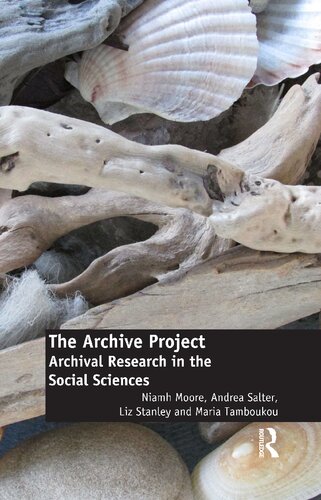

Most ebook files are in PDF format, so you can easily read them using various software such as Foxit Reader or directly on the Google Chrome browser.
Some ebook files are released by publishers in other formats such as .awz, .mobi, .epub, .fb2, etc. You may need to install specific software to read these formats on mobile/PC, such as Calibre.
Please read the tutorial at this link: https://ebookbell.com/faq
We offer FREE conversion to the popular formats you request; however, this may take some time. Therefore, right after payment, please email us, and we will try to provide the service as quickly as possible.
For some exceptional file formats or broken links (if any), please refrain from opening any disputes. Instead, email us first, and we will try to assist within a maximum of 6 hours.
EbookBell Team

4.7
96 reviewsRecent scholarship on archival research has raised questions concerning the character and impact of 'the archive' on how the traces of the past are researched, the use and analysis of different kinds of archived data, methodological approaches to the practicalities involved, and what kind of theory is drawn on and contributed to by such research. The Archive Project: Archival Research in the Social Sciences builds on these questions, exploring key methodological ideas and debates and engaging in detail with a wide range of archival projects and practices, in order to put to use important theoretical ideas that shed light on the methods involved.
Offering an overview of the current 'state of the field' and written by four authors with extensive experience in conducting research in and creating archives around the world, it demonstrates the different ways in which archival methodology, practice and theory can be employed. It also shows how the ideas and approaches detailed in the book can be put into practice by other researchers, working on different kinds of archives and collections. The volume engages with crucial questions, including: What is 'an archive' and how does it come into existence? Why do archival research and how is it done? How can sense be made of the scale and scope of collections and archives? What are the best ways to analyse the traces of the past that remain? What are helpful criteria for evaluating the knowledge claims produced by archival research? What is the importance of community archives? How has the digital turn changed the way in which archival research is carried out? What role is played by the questions that researchers bring into an archive? How do we deal with unexpected encounters in the archive?
A rigorous and accessible examination of the methods and choices that shape research 'on the ground' and the ways in which theory, practice and methodology inform one another, this book will appeal to scholars across the social sciences and humanities with interests in archival and documentary research.